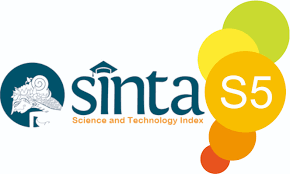Interaksi Wisata Syariah dan Pembangunan Ekonomi di Kota Pusarnya Pulau Jawa dalam Bentuk Ekonomi Komersial Ganda
 Abstract views: 377
,
Abstract views: 377
,
 PDF downloads: 449
PDF downloads: 449
Abstract
The purpose of this study is to discuss the relationship or interaction between Islamic tourism and economic development in Pemalang Regency in the form of a double commercial economy. This research is a qualitative research, the type of research uses a comprehensive analytical study and analytical, normative approach. Sharia tourism must be understood as a religious and cultural concept, in which Islamic objectives, Islamic teachings, as well as Islamic principles and practices must be included and made into the programs offered in these Sharia tourism activities. This means that Sharia tourism is not only for moving the activities of tourists to our area, but also for offering them our religious and cultural values. I summarizes this conceptualization of Sharia tourism interactions in three main points: economy, culture and religion. Tourism is of course aimed as a business world that is halal and brings financial benefits to Muslims. Tourism can also be used as a medium to promote and introduce Islamic cultures. Finally, the interest of Islamic tourism is to spread Islamic values and teachings.
Downloads
References
Adinugraha, Hendri Hermawan et al. 2018. Desa Wisata Halal: Konsep Dan Implementasinya Di Indonesia. Human Falah. 5. 1:28-48.
Syahriza, Rahmi. 2014. Pariwisata Berbasis Syariah: Telaah Makna Kata Sara dan Derivasinya dalam al-Qur’an. Jurnal Human Falah. 1. 2:135-145.
Masful, Mila Falma. 2017. Pariwisata Syariah: Suatu Konsep Kepercayaan dan Nilai Budaya Lokal Di Daerah Pedalaman Pilubang, Payakumbuh, Sumatera Barat. The Messenger. 9. 1:1-8.
Al Hasan, Fahadil Amin. 2017. Penyelenggaraan Parawisata Halal di Indonesia: Analisis Fatwa DSN-MUI tentang Pedoman Penyelenggaraan Pariwisata Berdasarkan Prinsip Syariah. Al-Ahkam: Jurnal Ilmu Syariah dan Hukum. 2. 1:59-78.
Satriana, Eka Dewi., Faridah, Hayyun Durrotul. 2018. Wisata Halal: Perkembangan, Peluang, dan Tantangan. Journal of Halal Product and Research (JHPR). 1. 2:32-43.
Rimet. 2019. Strategi Pengembangan Wisata Syariah Di Sumatera Barat: Analisis Swot (Strength, Weakness, Opportunity, Threath. Syarikat: Jurnal Rumpun Ekonomi Syariah. 2. 1:50-61.
Sucipto, Hery., Andayani, Fitria. 2014. Wisata Syariah. Grafindo Book Media. Jakarta.
Antariksa, Basuki. 2016. Kebijakan Pembangunan Kepariwisataan. Intrans Publishing. Malang.
Widagdyo, Kurniawan Gilang. 2015. Analisis Pasar Pariwisata Halal Indonesia. The Journal of Tauhidinomics. 1. 1:73–80.
Jaelani, Aan. 2017. Halal tourism industry in Indonesia: Potential and Prospects. Munich Personal RePEc Archive. Paper No. 76237.
Sofyan, Riyanto. 2012. Prospek Bisnis Pariwisata Syariah. Republika. Jakarta.
Ranis, Gustav. 1984. The Dual Economy Framework Relevance Asia Development. Manila Asia Development Review. 2. 1:39-51.
Berger, Peter L. 1990. Revolusi Kapitalis. LP3Es. Jakarta.
Tim Sanggar Batik Barcode. 2010. Batik. Katabuku. Jakarta.
Polanyi. 1957. The Great Transformation. Peacon Press. Boston.
Remi, S. S., Waluyo, S. D., Muljarijadi, B. 2016. Peran Pariwisata Dalam Perkembangan Perekonomian Daerah Studi Kasus Provinsi DKI Jakarta. Fakultas Ekonomi Universitas Padjadjaran Ikatan Sarana Ekonomi Indonesia. 1-22.
Nizar, M. A. 2011. Pengaruh Pariwisata Terhadap Pertumbuhan Ekonomi Di Indonesia. Jurnal Kepariwisataan Indonesia. 6. 2:195-211.
Boeke, J. H., Burger, D. H. 1973. Ekonomi Dualistik: Dialog Antara BOeke dan Burger. Bharatara. Jakarta.
Mynt, Hilla. 1985. Organizational Dualism and Economic. Asian Development Review. 3. 1.
Ranis, Gustav. 1984. The Dual Economy Framework Relevance Asia Development. Asia Development Review. 2. 1:39-51.
Zakiyah., Maulida, Atika Zahra. 2017. Analisis Strategi Evaluasi Kinerja Pengentasan Kemiskinan Dalam Program Pembangunan Desa Perspektif Ekonomi Mikro Islam. Al-Uqud: Journal of Islamic Economics. 1. 2:1–13.
Monge, Peter R. 1987. The Network Level of Analysis. Sage Publications Inc.
Copyright (c) 2020 Edutourism Journal Of Tourism Research

This work is licensed under a Creative Commons Attribution-ShareAlike 4.0 International License.
Authors who publish with this journal agree to the following terms:
- The author (s) keeps copyright on any article.
- The author grants the journal, right of first publication with the work simultaneously licensed under a Creative Commons Attribution License that allows others to share the work with an acknowledgement of the work’s authorship and initial publication in this journal.
- Authors can enter separate, additional contractual arrangements for the non-exclusive distribution of the journal’s published version of the work (e.g., post it to an institutional repository or publish it in a book), with an acknowledgement of its initial publication in this journal.
- Authors are permitted and encouraged to post their work online (e.g., in institutional repositories or on their website) prior to and during the submission process, as it can lead to productive exchanges, as well as earlier and greater citation of published work.
- We distributed the article, and any associated published material under the Creative Commons Attribution-Share alike 4.0 International License




